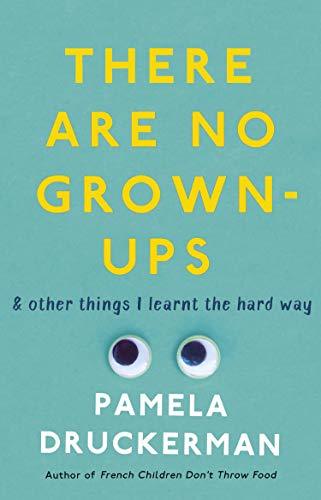
There Are No Grown-Ups: A midlife coming-of-age story
Pamela Druckerman
About the Author

Pamela Druckerman
Questions & Answers
The central theme of "There Are No Grown-Ups" is the exploration of the complexities and challenges of midlife, particularly for women, and the reevaluation of traditional perceptions of adulthood. Pamela Druckerman challenges the notion that there is a definitive moment or stage of life when one becomes a "grown-up." She argues that the concept of adulthood is fluid and varies greatly among individuals. Druckerman's narrative, filled with personal anecdotes and insights, highlights the physical, emotional, and social changes experienced during midlife, and how these changes can lead to a quest for self-knowledge and identity. By doing so, she encourages readers to redefine what it means to be an adult and embrace the journey of personal growth and self-actualization.
Pamela Druckerman employs personal anecdotes and observations to delve into the complexities of midlife and the transition into adulthood. She shares her own experiences, such as the shift from being addressed as "mademoiselle" to "madame," to illustrate the societal perception of aging and the transition to adulthood. By discussing her relationships, parenting, and cultural observations, she highlights the challenges and triumphs of midlife. Druckerman's storytelling allows readers to relate to her experiences, making the exploration of midlife's complexities relatable and engaging. She also incorporates insights from psychology, sociology, and her own research, weaving together a rich tapestry of personal narrative and scholarly analysis.
Cultural context plays a significant role in shaping our understanding of adulthood and midlife, as depicted in the book. The author, Pamela Druckerman, highlights differences in how various cultures perceive and experience these life stages. For instance, the French view midlife as a time of striving for freedom and self-actualization, while Americans often view it as a mythic, regretful phase. The book also contrasts the French approach to aging, which emphasizes embracing one's age and appearance, with the American focus on youthful beauty. Additionally, the book discusses how cultural norms influence relationships, parenting, and the pursuit of wisdom, showing that these experiences are not universal but shaped by cultural context.
Druckerman's perspective on midlife and adulthood diverges from traditional views by emphasizing the lack of definitive milestones or "grown-up" qualities. She argues that the concept of adulthood is a myth, and that the transition into it is not marked by specific events or achievements. Druckerman's narrative is grounded in personal experiences and observations, which she uses to illustrate the complexities of midlife. This perspective challenges readers to redefine what it means to be an adult and encourages self-reflection on personal growth and identity. It implies that adulthood is a continuous process of self-discovery and adaptation, rather than a destination reached at a certain age or after completing certain tasks. This has implications for readers by encouraging them to embrace the journey of becoming themselves, rather than adhering to societal expectations of adulthood.
The book "There Are No Grown-Ups" by Pamela Druckerman explores self-discovery and personal growth in midlife. Key takeaways include:
-
Midlife as a Coming-of-Age: Druckerman emphasizes that midlife is a period of significant personal growth and self-discovery, akin to a coming-of-age story. It's a time when one becomes more themselves, often accompanied by physical changes and increased responsibilities.
-
The Quest for Wisdom: Wisdom is a central theme, with Druckerman exploring its definition and importance. She suggests that wisdom involves understanding human nature, empathy, and making well-considered decisions with moral and social dimensions.
-
Learning the Rules: Druckerman encourages readers to learn from others, collect rules, and wisdom, recognizing that wisdom can come from unexpected sources and experiences.
-
Understanding Social Dynamics: The book emphasizes the importance of understanding social dynamics and the motivations of others, which can be achieved through careful observation and reflection.
-
Balancing Life's Roles: Midlife often involves managing multiple roles, such as parenting, career, and relationships. Druckerman suggests the importance of prioritizing, saying no, and finding joy in the midst of busy lives.
-
Embracing Change and Aging: Druckerman encourages readers to embrace the changes that come with aging, rather than resisting them, and to find contentment in the journey of life.